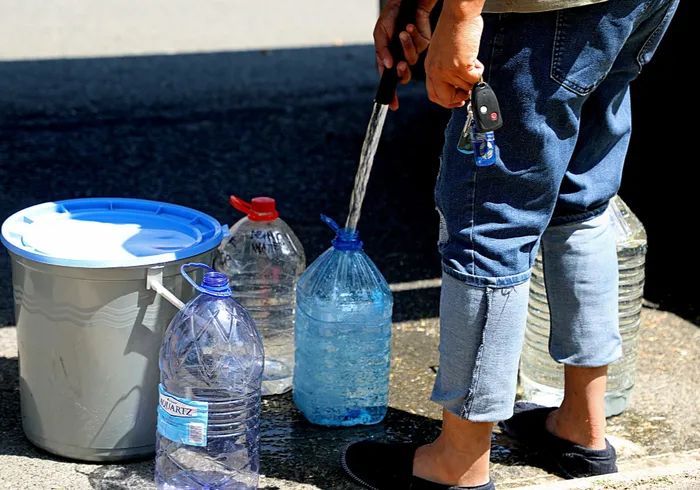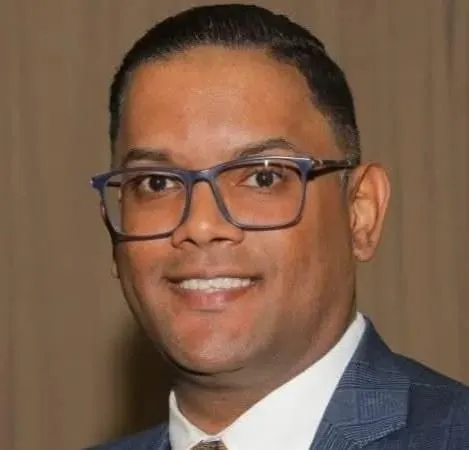The water crisis in eThekwini: a violation of human rights
Collapse of governance

These areas, predominantly minority communities and historically marginalised, appear to be on an unofficial water-shedding schedule, with supply often disappearing by midday and only returning the following morning, says the writer.
Image: File/ Timothy Bernard/ Independent Newspapers
OVER the past several years, residents of eThekwini have become well-acquainted with the ritual of stockpiling water, waking at unearthly hours to fill buckets, and sending children off to school without knowing whether there will be running taps in the bathrooms.
In Phoenix, Tongaat, Verulam, Chatsworth, and Isipingo, these routines are not emergency responses anymore - they have become a way of life.
What we are experiencing is not just a water crisis; it is a collapse of governance, accountability, and ultimately, human dignity. It would be comical, if it were not so tragic, that those who pay for water - diligent ratepayers - are the ones being systematically deprived of it. These areas, predominantly minority communities and historically marginalised, appear to be on an unofficial water-shedding schedule, with supply often disappearing by midday and only returning the following morning.
This is not equitable service delivery; this is systemic failure disguised as operational strain.
The Constitution of South Africa is unequivocal: Section 27(1)(b) states that everyone has the right to have access to sufficient water. The Water Services Act 108 of 1997, reinforces this, mandating municipalities to provide water services in a manner that is efficient, equitable, and sustainable.
What we are witnessing in eThekwini is a direct violation of this constitutional imperative. What’s worse is the perception - and in some cases the stark reality - that the city is weaponising incompetence. There are whispers, growing louder by the day, suggesting that this suffering is not accidental but deliberate: some point to racial indifference, others to revenge fantasies tied to the so-called "Phoenix Massacre."
Whatever the motive, the outcome is the same - families, schools, hospitals, and businesses are left high and dry.
Let’s talk about leadership.
City Manager Musa Mbhele has repeatedly failed to provide coherent explanations for the water crisis. The Executive Director of Water and Sanitation, Ednick Msweli, now presides over a department that is in complete disrepair - a department he previously led. That’s right, the fox has been put back in charge of the henhouse.
Meanwhile, political office bearers fiddle while eThekwini leaks. The city loses around 60% of its water through leaks, theft, illegal connections, and unmetered standpipes. To put that in perspective, that's like earning a salary and having more than half of it stolen from your wallet before payday.
Umgeni-uThukela, the bulk water supplier, has implemented water curtailments and has threatened to reduce supply to the metro by 90% unless urgent corrective action is taken. And who will bear the brunt of that? You guessed it - residents, ratepayers, and the voiceless poor.
The Auditor-General has warned, year after year, about the financial and operational implications of water loss. These findings have been met with the same enthusiastic response we see in council meetings: a shrug, a finger-point, and another committee formed to investigate the committee that failed to investigate the last one.
Meanwhile, the city has turned water into a commodity for tenderpreneurs. There is mounting evidence of a "tanker mafia," corrupt officials, and overpriced water delivery contracts that benefit the few at the expense of the many. Instead of fixing infrastructure, we are fueling an ecosystem of dependency and profiteering. The game being played is not chess; it’s Monopoly - and the utilities are all owned by the usual suspects.
The South African Human Rights Commission (SAHRC) has received several complaints regarding the water crisis in eThekwini. In multiple findings, the SAHRC has stated that the failure to provide basic water services constitutes a violation of human rights. Yet, there appears to be no real urgency from the city to implement these recommendations. The reports are gathering dust while residents gather water.
Let us not underestimate the impact this has on our most vulnerable. Elderly citizens, many with chronic conditions, are forced to carry buckets of water just to flush toilets. Schools operate without running water, compromising hygiene and learning conditions. Hospitals and clinics - the very institutions meant to preserve life - are rendered powerless without consistent water supply. Businesses suffer, productivity declines, and potential investors look elsewhere. Who wants to invest in a city where you can't flush a toilet or brew a cup of tea?
This crisis is not merely about burst pipes and empty reservoirs. It is about the economic credibility of a city on the brink. eThekwini's ability to attract investment, retain residents, and sustain its own revenue base is directly tied to the provision of basic services. The current state of affairs sends a loud and clear message: this city is not open for business.
So what can be done?
Residents have the right to escalate the matter through legal and civic channels. Petitions, public protests, class action lawsuits, and formal complaints to the SAHRC and Public Protector are not just options - they are civic duties. We must also demand transparency: real-time water supply data, audit reports on water contracts, and a published timeline for infrastructure repairs.
Ultimately, the solution lies not in patchwork projects or shifting accountability. We need an overhaul - new leadership, criminal investigations into corrupt officials, and a zero-tolerance policy for mismanagement. We need political will backed by technical competence and ethical governance. Most of all, we need to stop normalizing dysfunction.
Water is life. In eThekwini, it has become a luxury for the patient and a profit stream for the corrupt.

Jonathan Annipen
Image: File
Dr Jonathan Annipen is a councillor of the Ethekwini Municipality for the IFP. He serves as the Whip of the IFP in the Finance Committee.
** The views expressed do not necessarily reflect the views of IOL or Independent Media.
Related Topics: